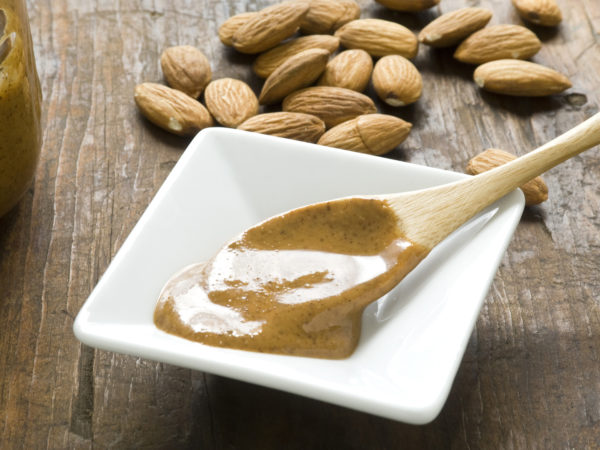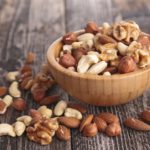Perplexed About Peanuts?
I enjoy peanuts, or used to before I read that they contain carcinogens. Is it unhealthy to eat peanut butter, too? A nutritionist told me that as long as peanuts are dry-roasted, they are free of the fungus that is a carcinogen.
Andrew Weil, M.D. | October 22, 2002

Updated on 4/4/2005
The carcinogen you’re referring to is aflatoxin, a natural toxin produced by certain strains of the mold Aspergillus flavus and A. parasiticus that grow on peanuts stored in warm, humid silos. Peanuts aren’t the only affected crops. Aflatoxins have been found in pecans, pistachios and walnuts, as well as milk, grains, soybeans and spices. Aflatoxin is a potent carcinogen, known to cause liver cancer in laboratory animals and may contribute to liver cancer in Africa where peanuts are a dietary staple.
Since aflatoxins are formed before peanuts are roasted, I don’t think the roasting process destroys them, but I also am less concerned than I used to be about aflatoxins in peanut products – including peanut butter – sold in the United States. A few years ago, Consumers Union looked into the question of aflatoxins in peanut butter and found that the amounts detectable varied from brand to brand. The lowest amounts were found in the big supermarket brands such as Peter Pan, Jif and Skippy. The highest levels were found in peanut butter ground fresh in health food stores.
The U.S. government tests crops for aflatoxin and doesn’t permit them to be used for human or animal food if they contain levels over 20 parts per billion. While we don’t know much about the dangers of long-term exposure to low levels of aflatoxin, my colleague Kathleen Johnson, a dietician here at the Arizona Center for Integrative Medicine, points out that there hasn’t been an outbreak of liver cancer among U.S. kids, who as you know, consume enormous amounts of peanut butter.
If you love peanuts, there’s no reason why you shouldn’t continue to eat them – and peanut butter – in moderation. While they’re really legumes, not true nuts, peanuts (and peanut butter) do contain heart-healthy monounsaturated fats. However, I still prefer almond butter and cashew butter, because they have a better fatty acid profile. And for snacking, I tend to choose raw, unsalted cashews, almonds or walnuts (an omega-3 source). If you do go for peanut butter, look for brands containing only peanuts or peanuts and salt (such as Laura Scudder’s and Adams). Avoid those with hydrogenated oils, sugar and other additives.
Andrew Weil, M.D.











